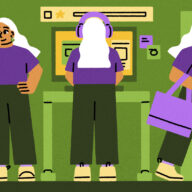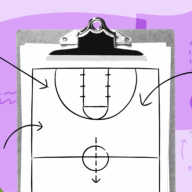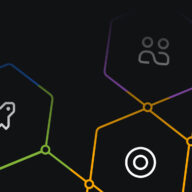Future-proof your career with peer feedback
Turbocharge your growth plan with this human-centered strategy.
Ever wonder if you spend more time with your peers at work than with your non-work friends? (You probably do. But that’s okay!)
Team-based work, and the performance outcomes related to it, is becoming the norm in many companies today. On the science of happiness and productive teams, researcher and author Shawn Achor says, “When people work together better, every metric of potential rises for everyone involved.”
When people work together better, every metric of potential rises for everyone involved.
Shawn Achor
Fact is, our coworkers probably know us better on some levels than our life partners. At the very least, they know how we’re performing at work. And if that’s the case, why do traditional performance reviews focus only on managerial feedback?
Peer reviews are an integral part of getting the whole picture when it comes to employee performance. And collecting peer feedback for performance reviews is becoming the norm. Here’s why:
You’ll get the complete view
Which review would you trust more: a restaurant with a 5-star rating and one reviewer, or a restaurant with a 4-star rating and 37 reviewers? Chances are you’d feel more confident about your chances at restaurant number two, since more people have visited and provided feedback. The same is true for employee performance. The more peer reviews collected from the right people, the more representative of that person the evaluation.
You’ll work better together
Traditional performance review systems often rate employees on a bell curve, forcing competition between those who are ranked “high performers” and those who are not. Even without the shortcomings of the bell curve rating system, pitting employees against each other through performance evaluations devalues the importance of collaboration. When you involve your colleagues in your performance evaluation you cut through the competitiveness and elevate collaboration. This approach focuses on development, and strengthens the team.
You’ll learn by doing
Giving and receiving feedback in a way that helps people develop is a skill learned over time. Consider vague feedback: “You did great running the meeting,” versus specific and actionable feedback: “I think you did a great job when you ran the all-hands meeting. It showed that you are capable of getting people to work together and communicate effectively. I admire your communication skills.” They’re worlds apart.
And when you involve peers (not just managers) in the performance review process, you further reinforce your company’s commitment to giving and receiving feedback.
It’ll support your job growth
Employee performance is about how well an employee executes their role-related expectations, and development is about helping employees reach greater levels of their performance. Both are aspects of the employee experience that peers can support. Through peer evaluations as an input to performance reviews, employees receive valuable feedback that supports learning and growth. And, when our peers know where we’re looking to develop, they can help even more. So make sure to express your interests.
And it’s the way of the future
“In some ways the whole idea of individual performance reviews is archaic: none of us can function alone, it’s the way we work within the company that defines our success,” says HR industry analyst Josh Bersin. Josh advocates taking peer feedback a step further and adding a layer of team performance evaluations, taking into account how people collaborate with others. (There’s collaboration as a competitive advantage once again!)










































